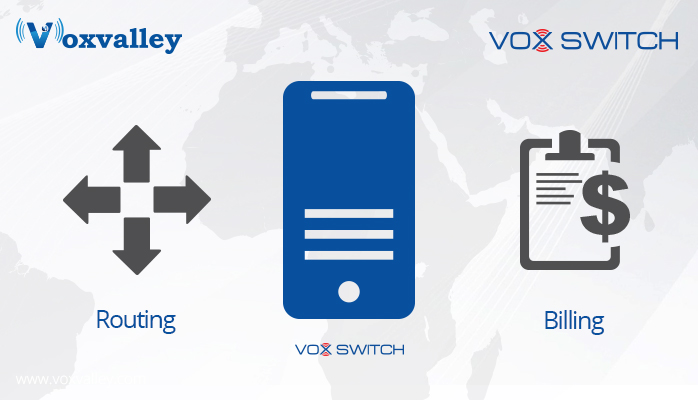Routing & Billing – The Core Features of Any Class 4 Softswitch
Class 4 Softswitch or Wholesale Softswitch is primarily used for routing traffic over long distances, usually from one country to another. Wholesale carriers use class 4 softswitch to route large volumes of traffic over and between different exchanges and LATAs (local access and transport areas). Thus, routing and billing form the core features of any class 4 softswitch that make or break the wholesale VoIP business. So, wholesale carriers are very critical about the selection of class 4 softswitch with much focus being laid on routing and billing parameters.

Routing
A typical class 4 softswitch uses intelligent routing types to overcome network congestion and latency while offering high quality of VoIP calls. Some of the well know routing types are listed below.
1. Least Cost Routing – Under this routing type, a class 4 softswitch selects the least cost route among the list of available routes for that particular destination from the international routes provider and routes the traffic successfully. As a result, wholesale carriers can make high profit margins as the VoIP traffic can now be terminated cost-effectively at various locations.
2. Percentage Routing – Under this routing type, a class 4 softswitch terminates the VoIP traffic using the routes that are pre-assigned with a set of percentages so that the route with the highest percentage gets the first priority and so on. Thus, wholesale carriers enjoy a free hand in deciding their profit margins using this routing type.
3. Longest Prefix Match Routing – Under this routing type, a wholesale softswitch compares all the incoming calls’ prefix with the prefixes assigned to each route and selects the route for which the longest prefix is matching for terminating the calls. For example, the incoming call has the prefix 00915 whereas route 1 is assigned with 009 prefix, route 2 with 0091 and route 3 with 00915, then class 4 softswitch selects route 3 as it matches the longest prefix for terminating the call.
4. Dial Plan Routing – Under this routing type, a class 4 softswitch routes the incoming traffic according to the dial plans created for each destination.
Such is the depth of routing in class 4 softswitch which helps wholesale carriers to seamlessly terminate the VoIP traffic at various destinations cost-effectively.
Billing
On the other hand, billing helps wholesale carriers to keep a track of customer accounts and bill their usage accurately. It is important to understand that the billing feature in class 4 softswitch must be powerful and more robust in nature as it has to process large volumes of VoIP traffic flawlessly. Any deviation would result in serious business loss to wholesale carriers. This is exactly why many wholesale carriers find it difficult to record high profits in their business.
In most cases, it is the call minutes that go unbilled hurts the profit margins of wholesale carriers more than the inaccurate usage billing of customers. However, both the causes have to be immediately checked for ensuring the right course for profitable wholesale VoIP business. Thus, billing becomes as important as routing in wholesale VoIP business.
The following are some of the billing types available in class 4 softswitch:
- Wholesale billing
- SIP-to-SIP billing
- Prepaid billing
- Postpaid billing
- Tax/VAT billing
- SMS Billing
So, wholesale carriers can enjoy freedom in choosing the suitable billing type in class 4 softswitch to monitor the customers’ usage and bill them accordingly.
Therefore, together routing and billing are the core features in any wholesale softswitch that carriers have to focus on for successful VoIP business.

